- Home
- William Shakespeare
Julius Caesar Page 11
Julius Caesar Read online
Page 11
They hear another shout, and Brutus suggests that “new honours” are being “heaped on Caesar.” Cassius argues that Caesar is now a “Colossus,” while they are merely “petty men.” He adds that “Men at some time are masters of their fates,” drawing attention again to the conflict between free will and fate. He returns to the subject of Rome, playing on Brutus’ concerns for the civic good rather than personal triumph. He reminds him of another Brutus, who overthrew the last king of Rome and established the republic. Brutus assures Cassius that he has already thought “of this and of these times.” He will not discuss it further now, but promises that they will talk again.
Lines 184–220: Caesar and his train return. Cassius quickly advises Brutus to “pluck Casca by the sleeve” to find out what has happened. Brutus observes that Caesar looks angry and that Calpurnia is pale. Caesar asks Antony to ensure that he only has “fat / Sleek-headed men” about him, unlike Cassius, who has “a lean and hungry look” and is “dangerous.” Antony reassures Caesar that Cassius is “a noble Roman,” but Caesar says that he mistrusts him. Unlike Antony, he does not care for plays or music and seldom smiles. Caesar observes that men such as Cassius are “never at heart’s ease / Whiles they behold a greater than themselves.” He asks Antony for his opinion, requesting him to speak on his right side as he is deaf in his left ear, another subtle reference to Caesar’s weaknesses, and a metaphorical allusion to his lack of perception/understanding. He exits with his train, leaving Brutus, Cassius, and Casca.
Lines 221–323: Casca describes how Caesar was offered a crown three times by Antony, and that each time he refused it to cheers from the crowd. He adds, however, that he thinks Caesar “would fain have had it” and “was very loath to lay his fingers off it.” As the crowd “hooted” and “clapped,” Caesar swooned and fell down, “foamed at mouth, and was speechless.” Brutus explains that Caesar “hath the falling sickness” (epilepsy), again drawing attention to potential infirmities. Casca goes on to describe how Caesar was so much in favor with the crowd that they were not put off by his collapse, although it appears to have affected his mood. Before leaving, Casca adds that Murellus and Flavius have been “put to silence” for “pulling scarves off Caesar’s images.” Brutus comments on how “blunt” Casca is, but Cassius says this is “put on.” Brutus promises to speak to Cassius the next day, and leaves. Alone, Cassius muses on Brutus’ “noble” nature, but feels that he can be manipulated. He reveals his plan to throw forged letters through Brutus’ window, complaining of “Caesar’s ambition.”
ACT 1 SCENE 3
Lines 1–41: Casca and Cicero meet during a violent storm. Cicero is unmoved, but Casca is disturbed by the “tempest,” which he sees as portentous. Questioned by Cicero, he lists recent omens, such as a man whose hand burned “Like twenty torches,” but who remained “unscorched.” Cicero agrees but points out that people misinterpret things. Casca tells Cicero that Caesar will be at the Capitol the next day, and Cicero bids him goodnight.
Lines 42–170: Cassius arrives, and Casca comments again on the “menace” of the heavens. Like Cicero, Cassius is unconcerned, describing how he presented himself to “the aim and very flash” of the lightning. Casca warns that he should not “tempt the heavens”: men should “fear and tremble” when the “most mighty gods” send such “tokens.” Cassius argues that Casca should ask himself why the heavens have sent “instruments of fear and warning.” Casca understands that Cassius refers to Caesar, and reports that the senators mean to make him king the next day. Cassius declares that he will “deliver” himself from such bondage, and calls upon the gods. Casca argues that he, too, can “cancel his captivity.” Cassius tells Casca that he has the support of several “noblest-minded Romans” to undertake “an enterprise / Of honourable dangerous consequence,” and that they are waiting for him under the cover of the “fearful night.” They are interrupted by the arrival of Cinna, and draw back until Cassius identifies him. Cassius asks whether the conspirators are waiting, then sends Cinna with the letters to throw into Brutus’ house. He asks Casca to accompany him to see Brutus. Casca observes that Brutus’ involvement will make their “offence” appear as “virtue” and “worthiness,” because the people love and respect him.
ACT 2 SCENE 1
Lines 1–60: Brutus is in his orchard, unable to sleep. He sends Lucius to light a candle in his study. Brutus’ soliloquy reveals his concerns over Caesar: he can see no other way to stop him than “by his death.” He makes it clear that his reasons are not “personal,” but “general.” He concedes that he has never known Caesar to allow his “affections” to be “swayed / More than his reason,” but adds that ambition is dangerous. Lucius returns with a letter he has found in the study (one of those planted by Cassius and Cinna), and Brutus sends him away again to check the date. Alone, he reads the letter. The audience only receives brief words and phrases: “Shall Rome, etc.,” “Speak, strike, redress,” contributing to a sense of Brutus’ fragmented thoughts, but suggesting doubt as to how convincing the letter is, and the extent to which Brutus is willing to “piece it out” to persuade himself. He is resolved, however: he promises Rome that “redress will follow.” Lucius returns with the information that the next day is March 15 and goes to answer a knocking at the gate.
Lines 61–243: Lucius announces that Cassius has arrived with others whose “hats are plucked about their ears / And half their faces buried in their cloaks.” Unsettled, Brutus tells Lucius to show them in. Cassius introduces the other conspirators, assuring Brutus that they all “honour” him, as does “every noble Roman.” Cassius and Brutus speak aside before Brutus asks everyone to give him their hands. Cassius wishes to “swear [their] resolution,” but Brutus insists there will be no “oath”: none is needed if they are all acting as “countrymen” and “Romans.” Cassius argues that Antony should also be killed, but Brutus points out that this will make them seem “too bloody”: they must be “sacrificers, but not butchers,” and their “purpose necessary, and not envious.” The clock strikes three, and the conspirators arrange that they will all meet to accompany Caesar to the Capitol by “the eighth hour.” Metellus suggests that they include Ligarius, and Brutus asks him to send Ligarius to him. He encourages the others to conceal their true feelings as “actors do,” and they leave. Lucius does not answer Brutus’ call, and Brutus envies him his peaceful sleep.
Lines 244–350: Portia enters, worried about her husband, and the dynamics of the scene shift from political to domestic/personal. Brutus is concerned that Portia’s health will suffer in the “raw cold morning.” She comments on his recent behavior, observing that whatever is troubling him prevents him from eating, talking, or sleeping. She begs him to tell her his “cause of grief.” Kneeling, she argues that he cannot be ill, but that he must have “some sick offence within [his] mind,” and asks him to tell her. Their exchange is tender, in contrast to the earlier brutal plotting. Brutus assures her that she is his “true and honourable wife” and that he will explain “the secrets of [his] heart” in a little while. As she leaves, Lucius shows in Ligarius, who assures Brutus that he will “discard” his sickness to follow him.
ACT 2 SCENE 2
Lines 1–59: Like Brutus, Caesar has had a troubled night. Calpurnia has dreamed three times of Caesar’s murder, calling out in her sleep. As Caesar sends a servant to the priests, instructing them to make a sacrifice to determine his success that day, Calpurnia enters. Their conversation highlights tensions between public and domestic/personal concerns, as Calpurnia begs Caesar to remain at home. She tells him of the various omens that have been seen, but Caesar argues that what is “purposed by the mighty gods” cannot be avoided, and that the “predictions” do not necessarily relate to him. Like Portia, Calpurnia kneels before her husband, asking him to send Antony to the senate to say he is unwell. He agrees.
Lines 60–136: Decius arrives to fetch Caesar, but Caesar asks him to tell the senate he “will not come.” When Decius asks for a reas
on, Caesar declares that it should be enough for the senate that it is his “will” not to. He explains to Decius, however, about Calpurnia’s dream: she saw a statue of Caesar “Which, like a fountain with an hundred spouts, / Did run pure blood” that Roman citizens bathed their hands in. Decius suggests that they have misinterpreted the dream: it means that “great Rome shall suck / Reviving blood” from Caesar. Caesar is impressed by his reasoning, and Decius tells him that the senate has decided to give “a crown to mighty Caesar” today, arguing that they may change their minds if he does not go and that he will look foolish. Caesar is ashamed of yielding to Calpurnia, and decides to go. Brutus and others join the scene, coming also to fetch Caesar, who ironically refers to them as his “friends.”
ACT 2 SCENE 3
Artemidorus reads the petition he plans to hand to Caesar, warning him against the conspirators.
ACT 2 SCENE 4
Portia struggles between her fears for Brutus and her promise to “keep counsel.” The Soothsayer enters on his way to deliver a suit to Caesar advising him “to befriend himself” and Portia betrays her nerves as she questions him.
ACT 3 SCENE 1
Lines 1–84: As Caesar approaches the Capitol, he observes that the “Ides of March are come” but the Soothsayer points out that they are not yet over. Artemidorus attempts to present his petition to Caesar, but he refuses to listen. The senators hustle Artemidorus away. The tension is marked as the senators worry that they have been found out. However, Trebonius draws Antony “out of the way,” and Caesar settles to hear the business of the senate. Metellus kneels and begins to flatter Caesar, asking that his brother’s banishment be repealed, but Caesar interrupts, saying that he will not hear “base spaniel-fawning,” and refuses to reconsider. One by one the senators kneel before Caesar in an ironic reversal of the true power dynamics at play, and add their word to that of Metellus. Caesar, however, says that he is as “constant as the northern star” and refuses to change his mind. When Cinna also kneels, Caesar asks if they will “lift up Olympus,” emphasizing his sense of self-importance. Casca stabs Caesar while the other conspirators rush in, following in a frenzied attack (Octavius later speaks of “Caesar’s three and thirty wounds”: 5.1.55). Brutus is the last to strike, and Caesar’s final words, “Et tu, Bruté?,” reveal his shock at his friend’s betrayal.
Lines 85–159: Cinna cries out “Tyranny is dead!” and calls for it to be proclaimed in the streets. Everyone except the conspirators and Publius leaves during the chaos, including Antony, who Trebonius reports has “Fled to his house amazed.” Publius is urged to go as Brutus argues that none but those who have committed the deed shall be punished for it. He tells his fellow conspirators to “stoop” and “bathe” their hands in Caesar’s blood, echoing Calpurnia’s dream. They plan to walk to the marketplace, showing their bloody hands and swords and declaring “Peace, freedom and liberty!” In a moment of metatheater, they imagine their “lofty scene” being acted out in years to come, with themselves portrayed as “The men that gave their country liberty.” A servant brings a message from Antony. Casting himself at their feet, he says that Antony “bid” him to say that “Brutus is noble, wise, valiant and honest” and that he asks to be allowed to approach in safety and be given reasons for Caesar’s murder. Despite Cassius’ misgivings, Brutus agrees and gives his word that Antony shall not be harmed.
Lines 160–272: Antony arrives and addresses his first words to “mighty” Caesar’s body, before saying that if they intend to kill him too, they should do so now with their swords, “made rich / With the most noble blood of all this world.” Brutus assures him that although their hands seem “bloody and cruel,” their hearts are “pitiful.” He asks Antony to wait until they have reassured the frightened crowd and promises to explain why he killed Caesar even though he loved him. Antony shakes hands with each conspirator in turn then addresses Caesar’s corpse again, ensuring that the audience’s attention and sympathy are with Caesar as he describes himself as “Shaking the bloody fingers” of Caesar’s “foes,” comparing them to hunters and Caesar to a slaughtered deer. Cassius insists that they do not blame Antony for praising Caesar, but that they want to know whether they can count him as a friend. He reassures them but asks again for their “reasons,” and that he may be allowed to carry Caesar’s body to the marketplace and to speak at his funeral. Brutus agrees but Cassius is concerned. Cassius advises Brutus not to allow Antony to speak as the people will be “moved” by him. Brutus decides that he will address the crowd first, telling them that Antony is speaking with his permission. Antony agrees to this and they leave him with Caesar’s body.
Lines 273–316: Antony apologizes to Caesar for being “meek and gentle with these butchers,” revealing his true pain and anger. He makes a prophecy that there will be “fierce civil strife” throughout Italy. He paints a bloody and violent picture, claiming that “Caesar’s spirit” will roam looking for “revenge.” A Servant arrives from Octavius Caesar, bringing news of his imminent arrival. The Servant sees Caesar’s body and begins to weep, causing Antony to shed tears as well. He asks the Servant to inform Octavius of events and to warn him that Rome is dangerous, but first to stay and hear him speak at the funeral.
ACT 3 SCENE 2
Lines 1–62: In the Forum, the plebeians demand an explanation. Brutus announces that he will speak to some of the crowd, while Cassius addresses others elsewhere. Brutus’ speech combines rhetorical devices with prose to appeal to his plebeian audience. He argues that he loved Rome more than Caesar, and asks them whether they would rather Caesar was living and that they were “slaves,” or that they were free and Caesar dead. The crowd are swayed and, as Antony enters with Caesar’s body, call out for Brutus to be “crowned.” Brutus silences them, and, before he leaves, asks that they stay to hear Antony, who has the senate’s “permission” to address them.
Lines 63–172: The crowd is hostile, but Antony’s speech is powerful and emotive, and his rhetoric more sophisticated. He praises Brutus, reiterating that he is “an honourable man,” although his repetition seems to undermine rather than reinforce the statement. He reminds them of Caesar’s qualities and his previous refusal of the “kingly crown.” He breaks off, apparently overcome with emotion, and the crowd show how his words have moved them, declaring that Caesar was wronged, and that there is “not a nobler man in Rome than Antony.” Antony reveals that he has Caesar’s will, although he “must not” read it. The crowd want to hear it, but Antony claims that it will “wrong the honourable men / Whose daggers have stabbed Caesar”; his use of “honourable” becoming more sardonic with every repetition. The crowd have been won over: Brutus and the others are “traitors,” “villains,” and “murderers.” They demand to hear the will, and Antony, with careful humility, asks their permission to come down among them, and that they form a ring around Caesar’s body.
Lines 173–275: Showing his absolute control over the mood of the crowd, Antony tells them to “prepare to shed” tears, reminiscing about the first time that Caesar wore the cloak that covers him. He points out each stab wound, listing the men who gave them and calling Brutus’ “the most unkindest cut of all.” Finally, he reveals Caesar’s body to the crowd. They weep for Caesar, and call for revenge, but Antony claims that he does not wish to create a mutiny. His careful denials inflame the crowd further, and to reinforce this, he reads them the will in which Caesar has left each Roman citizen seventy-five drachmas as well as all his “private arbours and new-planted orchards” in which they may “walk abroad and recreate” themselves. Roused, the plebeians plan to burn Caesar’s body “in the holy place,” before burning the conspirators’ houses. They take Caesar’s body and Antony remains, calling for the ensuing chaos to “Take … what course thou wilt.” Octavius’ servant returns with the news that he is already in Rome, with Lepidus at Caesar’s house.
ACT 3 SCENE 3
The plebeians kill Cinna the Poet, even though he explains that he is not “Cinna the
conspirator,” demonstrating the anarchic brutality that now prevails.
ACT 4 SCENE 1
Antony, Octavius, and Lepidus discuss which conspirators are to die, including Lepidus’ brother and Antony’s nephew. Antony asks Lepidus to go to Caesar’s house to collect the will. Once Lepidus has gone, he calls him “a slight unmeritable man,” and questions his abilities as one of a triumvirate. He suggests that Lepidus’ role is merely to take on the burden of the tasks that they don’t want to do themselves, like an “ass” to be “led or driven” as Octavius and Antony see fit. Despite Octavius’ comments that Lepidus is “a tried and valiant soldier,” Antony continues to belittle him, foreshadowing the future in which Rome will have another divided, and therefore potentially weak, leadership. Their talk turns to Brutus and Cassius, who are making preparations to fight. They resolve to go and do likewise.

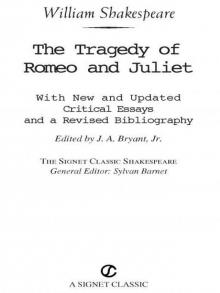 Romeo and Juliet
Romeo and Juliet As You Like It (Folger Shakespeare Library)
As You Like It (Folger Shakespeare Library)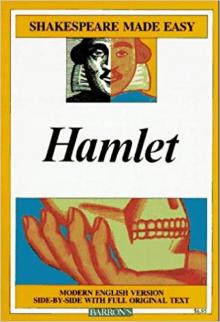 Hamlet
Hamlet Richard II (Folger Shakespeare Library)
Richard II (Folger Shakespeare Library) Macbeth
Macbeth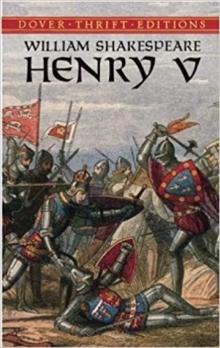 Henry V
Henry V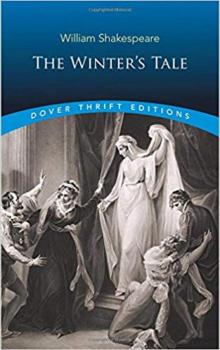 The Winter's Tale
The Winter's Tale The Taming of the Shrew
The Taming of the Shrew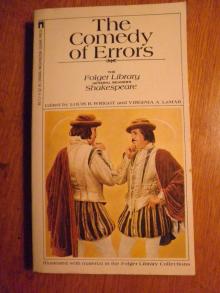 The Comedy of Errors
The Comedy of Errors King Lear (Folger Shakespeare Library)
King Lear (Folger Shakespeare Library)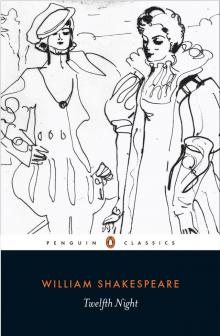 Twelfth Night
Twelfth Night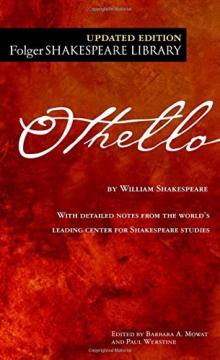 Othello
Othello The Two Gentlemen of Verona
The Two Gentlemen of Verona Henry IV, Part 1 (Folger Shakespeare Library)
Henry IV, Part 1 (Folger Shakespeare Library) King John/Henry VIII (Signet Classics)
King John/Henry VIII (Signet Classics)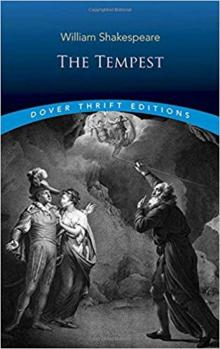 The Tempest
The Tempest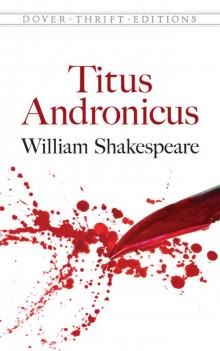 Titus Andronicus (Dover Publications)
Titus Andronicus (Dover Publications)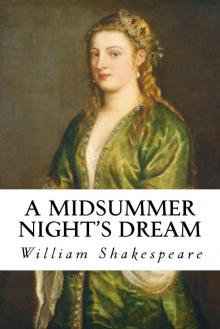 A Midsummer Night's Dream
A Midsummer Night's Dream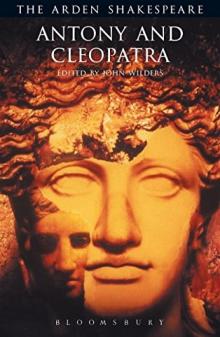 Antony and Cleopatra (Arden Shakespeare: Third Series)
Antony and Cleopatra (Arden Shakespeare: Third Series)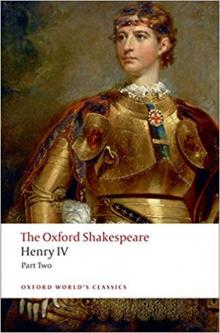 The Oxford Shakespeare: Henry IV, Part 2 (Oxford World's Classics)
The Oxford Shakespeare: Henry IV, Part 2 (Oxford World's Classics)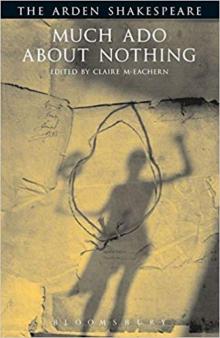 Much Ado About Nothing (Arden Shakespeare: Third Series)
Much Ado About Nothing (Arden Shakespeare: Third Series) All's Well That Ends Well
All's Well That Ends Well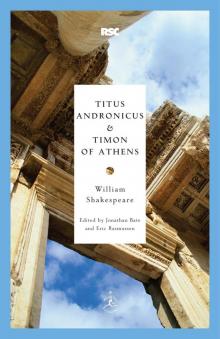 Titus Andronicus & Timon of Athens
Titus Andronicus & Timon of Athens Richard III (Modern Library Classics)
Richard III (Modern Library Classics) Coriolanus
Coriolanus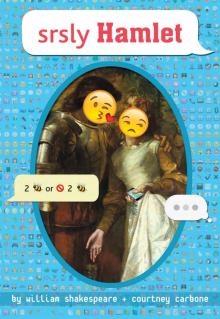 srsly Hamlet (OMG Shakespeare)
srsly Hamlet (OMG Shakespeare)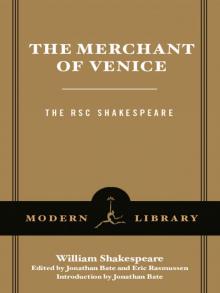 The Merchant of Venice
The Merchant of Venice Richard III
Richard III Richard II
Richard II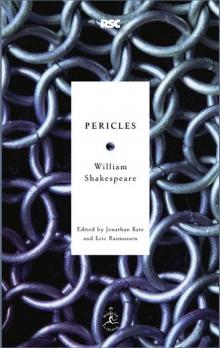 Pericles
Pericles As You Like It
As You Like It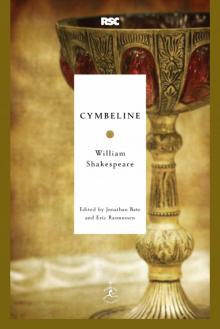 Cymbeline
Cymbeline Alls Wel that ends Well
Alls Wel that ends Well YOLO Juliet
YOLO Juliet A Midsummer Night #nofilter
A Midsummer Night #nofilter Love's Labour's Lost
Love's Labour's Lost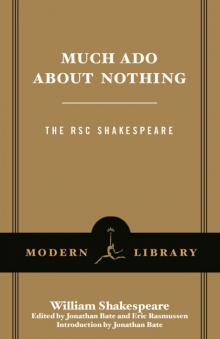 Much Ado About Nothing
Much Ado About Nothing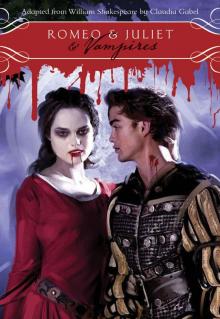 Romeo & Juliet & Vampires
Romeo & Juliet & Vampires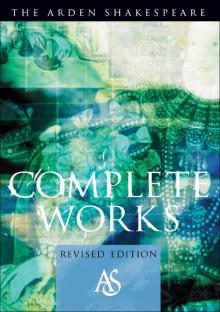 The Arden Shakespeare Complete Works
The Arden Shakespeare Complete Works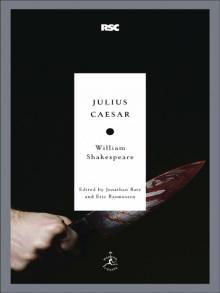 Julius Caesar
Julius Caesar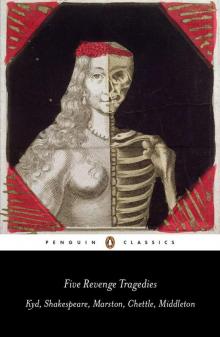 Five Revenge Tragedies: The Spanish Tragedy, Hamlet, Antonio's Revenge, The Tragedy of Hoffman, The Revenger's Tragedy (Penguin Classics)
Five Revenge Tragedies: The Spanish Tragedy, Hamlet, Antonio's Revenge, The Tragedy of Hoffman, The Revenger's Tragedy (Penguin Classics)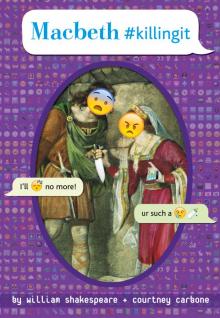 Macbeth #killingit
Macbeth #killingit The Oxford Shakespeare: The Complete Works
The Oxford Shakespeare: The Complete Works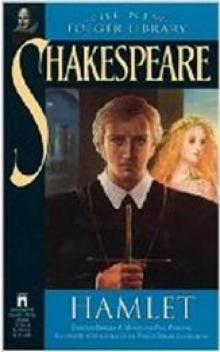 Hamlet, Prince of Denmark (Collins edition)
Hamlet, Prince of Denmark (Collins edition) King John & Henry VIII
King John & Henry VIII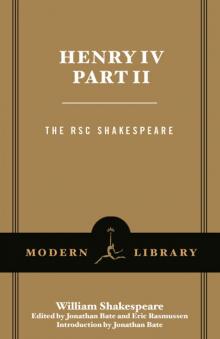 Henry IV, Part 2
Henry IV, Part 2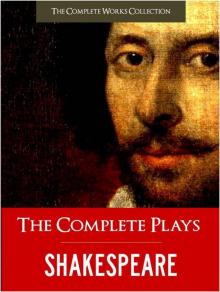 Complete Plays, The
Complete Plays, The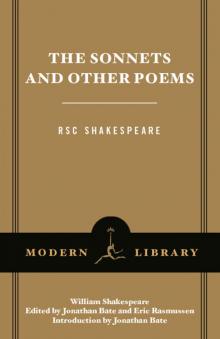 The Sonnets and Other Poems
The Sonnets and Other Poems Antony and Cleopatra
Antony and Cleopatra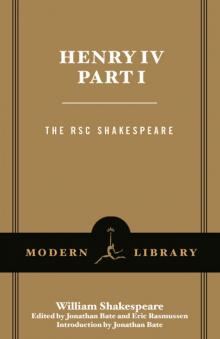 Henry IV, Part 1
Henry IV, Part 1 Is This a Dagger Which I See Before Me?
Is This a Dagger Which I See Before Me? The Complete Works of William Shakespeare In Plain and Simple English (Translated)
The Complete Works of William Shakespeare In Plain and Simple English (Translated)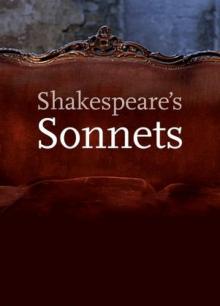 The Sonnets
The Sonnets